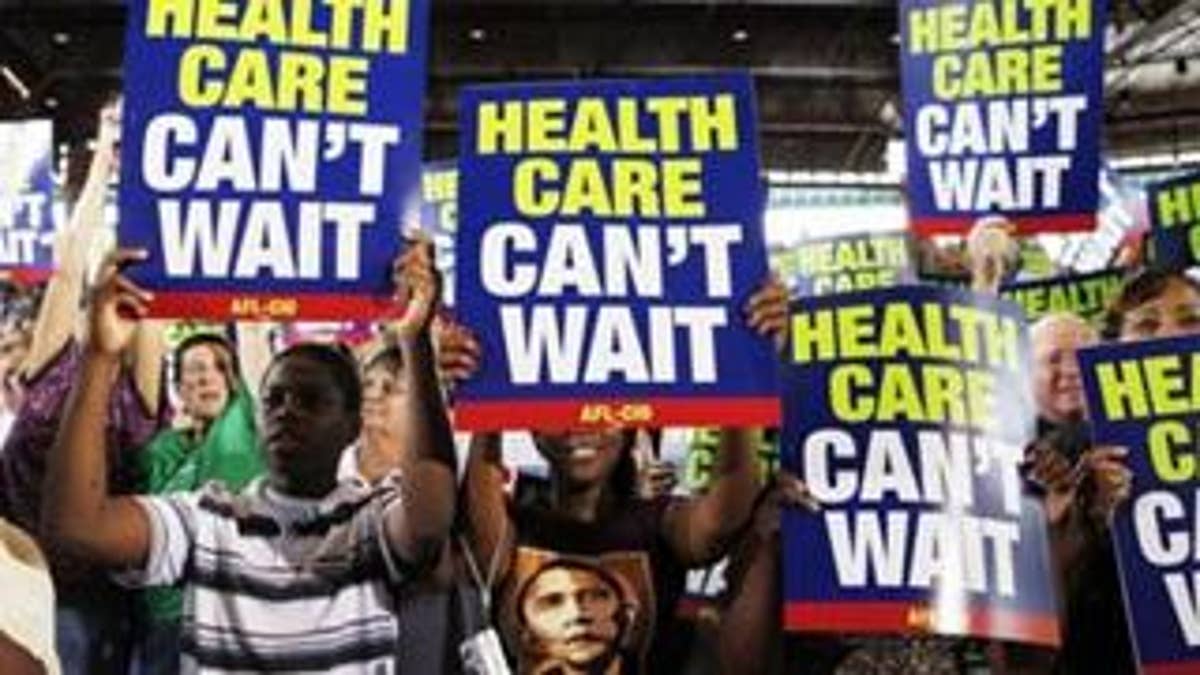
Confused by all the health care jargon? FOXNews.com breaks down the terminology in advance of President Obama's Wednesday night address on health care before a joint session of Congress.
Co-op
A non-profit health cooperative, or "co-op," is a member-owned group that assembles a network of salaried medical providers and negotiates payment rates with them. Membership is voluntary; consumers decide whether a co-op's costs, coverage, provider networks and other features are superior to those of private plans. Sen. Kent Conrad, D-N.D., a key member of the Senate Finance Committee, first proposed the idea of a co-op alternative to a public health insurance plan.
Public option
A public option, or "nationalized plan," is a government-run, government-funded health insurance option offered as an alternative to private insurance companies. Obama has said a public option will make health care more affordable, because people would pay premiums 10 to 20 percent less than they would in a private insurance plan.
Private insurance
Health coverage provided by companies like Blue Cross Blue Shield, GHI, and United Health care.
"Single payer"
A term used to describe a system that would collect all health care fees and pay out all health care costs. This type of financing system has been proposed to eliminate administrative waste, because it would force doctors and hospitals to bill one entity for services -- rather than several private insurance companies that have different billing procedures.
"Trigger"
Some Democrats, like Sen. Max Baucus, have proposed a so-called "trigger" in the health care reform legislation, which would keep a government plan on reserve in case private insurers don't meet certain benchmarks.
Medicare and Medicaid
Medicare is a government-backed program for seniors 65 years or older. Medicaid is a health option for low-income individuals and families.
"Socialized" medicine
Critics of Obama's health care reform, like Republican National Committee Chairman Michael Steele, have called the idea of a public option "socialist" -- meaning the option would drive private insurers out of business and create a government-regulated system that provides health care for all. Merriam-Webster's Online Dictionary defines "socialism" as "any of various economic and political theories advocating collective or governmental ownership and administration of the means of production and distribution of goods."
"Rationing" care
Critics charge that a government-run health insurance system would lead to health care "rationing" -- meaning that care would be given according to need. Obama has countered this charge, saying the "public option" will provide greater access to health care.
Health insurance exchange
A phrase used to describe a "marketplace" for various health care options -- including a government plan -- that will increase competition.
Doughnut hole
A gap in coverage for seniors within the defined standard benefit under the Medicare Part D prescription drug program. The doughnut hole requires seniors to pay full cost for drug prescriptions after they reach a spending limit.
Electronic records
The Obama administration has called for all records to be computerized within the next five years as a way to modernize the health care system and lower costs.




